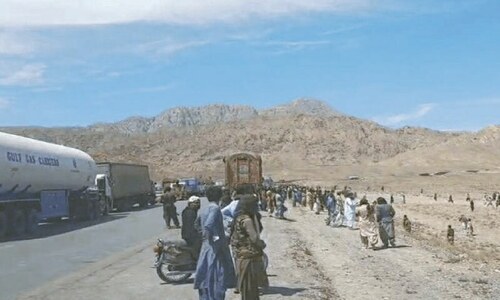NARENDRA Modi’s anointment as Bharatiya Janata Party (BJP) prime ministerial candidate shows that while the Rashtriya Swayamsevak Sangh (RSS) has tightened its grip over its political front (the BJP) Modi has broken all limits in self-assertion which no BJP leader has ever dared. India’s polity will be affected by this tussle.
Modi has shown every senior leader his place by assigning to him the constituency of Modi’s choice.
He sent his own handpicked men to perform tasks he assigned during the elections. The party machine counted for little. His intimate aide Amit Shah was handpicked to go to UP. Soon enough he asked the Hindu voter to exact his “revenge” for the Muzaffarnagar riots, by voting for the BJP.
Two other acolytes picked up the refrain on the same day, April 19. In Gujarat Pravin Togadia, the president of the Vishwa Hindu Parishad, targeted Muslims who bought properties in Hindu areas. If the Muslim occupant does not vacate within 48 hours “go with stones, tyres and tomatoes to his office. There is nothing wrong in it”.
On the same day, Bihar BJP leader Giriraj Singh said that “those who want to stop” Modi will soon have “no place in India … because their place will be in Pakistan”.
This was no coincidence. Uttar Pradesh and Bihar will make or mar Modi’s success. Modi is out to consolidate Hindu votes there.
If he wins, what kind of a prime minister will he emerge? In Gujarat he ended the cabinet government. Opponents within the state BJP were consigned to oblivion. Can he do the same to the BJP headquarters in New Delhi? The crucial question is whether the RSS will acquiesce in his plans. In 1998, it successfully foiled A.B. Vajpayee’s proposal to make Jaswant Singh finance minister. Precisely what will be the basic equation between Modi and the RSS?
The RSS was founded in 1925. The Jan Sangh was set up on Oct 21, 1951 under a Faustian pact between the RSS and former chief of the Hindu Mahasabha, Syama Prasad Mookerjee. He was privy to the constituent resolution of April 3, 1948 urging a ban on ‘communal’ organisations. Since the Mahasabha refused to end its exclusion of non-Hindus, he did a deal with the RSS — he would set up a nominally non-denominational party; the RSS will provide the cadres, the muscle. Before long, the RSS began to dictate terms.
The Jan Sangh dissolved in 1977 to merge with the Janata Party, along with other parties who had defeated Indira Gandhi in the elections. It did not last. The Jan Sangh faction left the Janata Party to sail under false colours — the Bharatiya Janata Party.
The reason for the break was its allies’ demand, in effect, that it shed its allegiance to the RSS. The BJP was founded on April 5, 1980. L.K. Advani has never hesitated to claim that it is “a Hindu party”.
The RSS had three presidents of the BJP removed from their posts — Mauli Chandra Sharma in 1954, Balraj Madhok in 1973 and Advani in 2005.
Time has proved the correctness of what Walter Andersen & Shridhar Damle wrote 30 years ago in The Brotherhood in Saffron: “The BJP for its part will try to develop into a national political force, but it is questionable whether it can do so with a cadre drawn largely from the RSS. Within the party’s organisational structure, the cadre has been reluctant to share power with politically prominent figures from non-RSS backgrounds who could mobilise mass support.... The RSS training, emphasising the sacrifice of self for the larger good, and apolitical orientation of the RSS ideology, make it unlikely that politically charismatic figures will emerge from within its own ranks. On the other hand, it is questionable if the BJP could survive politically without the RSS cadre, and the cadre will not stay unless the leadership of the party stays firmly in the hands of the ‘brotherhood’.”
Both trends were in evidence. Some, like Vajpayee, tried to give the BJP a ‘humane’ face with a view to its emergence as a secular right-wing party. They failed because the RSS would have none of it. But nor can the BJP survive without the cadres seconded by the RSS.
During the elections, particularly, those cadres’ and the RSS’ resources become indispensable. For four good reasons Modi will be compelled to accept some limits — the faction in the BJP which he has slighted will assert itself; he is no Indira Gandhi to be able to decimate the party; public opinion in every democracy curbs excesses by the man in power; and lastly Modi’s own divisive personality.
The writer is an author and lawyer based in Mumbai.










































